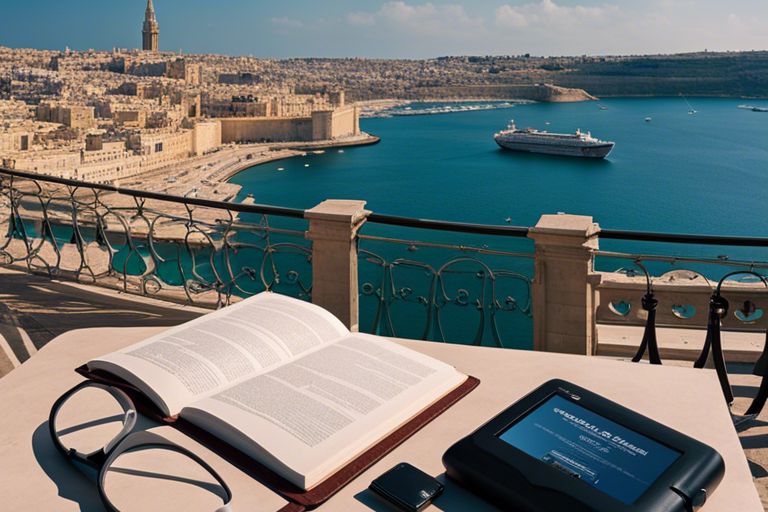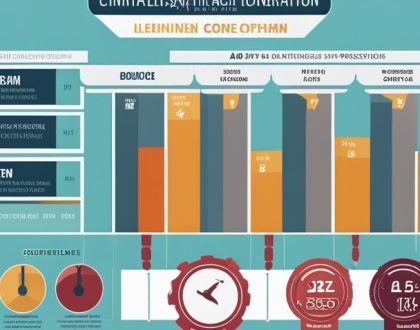Understanding Malta’s Legal Landscape

Over the years, Malta has established itself as a key player in the global financial and legal sectors. Its strategic location, stable political environment, and robust legal framework have attracted businesses from around the world to set up operations on the island. To fully comprehend the legal landscape of Malta is crucial for individuals and companies looking to navigate through its legal system seamlessly. From financial services regulations to corporate governance standards, gaining insights into Malta’s legal framework can provide a competitive edge in the market.
Historical Context of Maltese Law
Influences on the Maltese Legal System
A key factor in understanding Malta’s legal landscape is recognizing the diverse influences that have shaped its legal system over the centuries. The Maltese legal system today reflects a unique blend of Roman, French, British, and Italian legal traditions.
Evolution from British Colony to EU Member
From being a British colony to becoming a member of the European Union (EU) in 2004, Malta has undergone significant legal transformations. Joining the EU meant that Malta had to align its laws with the EU’s legal framework, resulting in a harmonization of legislation across various sectors such as trade, environment, and human rights.
The accession to the EU brought about increased opportunities for economic growth and development for Malta, providing access to the single market and various EU funding programs. This integration also strengthened Malta’s legal system by incorporating EU laws and regulations, enhancing legal certainty and consistency.
The Maltese Constitution and Governance
Overview of the Maltese Constitution
Little is known about the Maltese Constitution, but its significance cannot be overstated. Adopted in 1964 when Malta gained independence from British rule, the Constitution serves as the supreme law of the land, laying out the rights and duties of citizens, the structure of the government, and the division of powers between different institutions. It also establishes Malta as a parliamentary republic with a President as head of state and a Prime Minister as head of government.
Structure of the Government
On the surface, the Maltese government is structured into three branches: the executive, the legislative, and the judiciary. The executive branch is headed by the Prime Minister, who leads the Cabinet of Ministers responsible for implementing laws and policies. The legislative branch consists of the unicameral Parliament, known as the House of Representatives, where elected members debate and enact laws.
Understanding the structure of the Maltese government is crucial for grasping how decisions are made, laws are enacted, and power is distributed. The Constitution defines clear roles and responsibilities for each branch, ensuring a system of checks and balances to prevent any one branch from becoming too powerful. This separation of powers is imperative for maintaining a stable and democratic governance system in Malta.
The Legal Framework
Civil Law and Common Law Influences
Many legal systems around the world are either based on Civil Law or Common Law principles. In the case of Malta, its legal framework is a unique blend of both influences. With historical ties to Britain, Malta has inherited aspects of the Common Law system, while also incorporating elements of Civil Law from its continental European neighbors.
This fusion of legal traditions has created a nuanced legal landscape in Malta. While the country’s legal system is rooted in Roman law principles, it also places importance on judicial precedents and case law, a characteristic feature of the Common Law system. This dual influence provides a rich foundation for legal practitioners and ensures a comprehensive approach to resolving legal disputes in the country.
Key Legislative Acts
For a thorough understanding of Malta’s legal framework, it is necessary to be familiar with key legislative acts that shape the legal landscape. Some of the most important legislative acts in Malta include the Constitution of Malta, the Civil Code, and various commercial laws regulating business activities in the country.
Understanding the key legislative acts not only provides insights into the legal rights and obligations of individuals and businesses in Malta but also serves as a roadmap for navigating the legal system. These laws outline the procedures, rights, and responsibilities that govern various aspects of life in Malta, offering a sense of certainty and security in legal matters.
The Judicial System
Now, let’s examine into Malta’s judicial system, which plays a crucial role in upholding the rule of law and ensuring justice prevails in the country. The judiciary in Malta operates independently, following principles of fairness and impartiality in its decision-making processes.
Structure of the Courts
Malta’s court system consists of a hierarchy of courts that cater to different types of cases. At the top sits the Constitutional Court, which deals with matters concerning constitutional rights and interpretations. Below this is the Court of Appeal, responsible for hearing appeals from decisions made by lower courts. The Court of Criminal Appeal focuses specifically on criminal cases, while the Civil Court handles civil matters. Magistrates’ Courts address less serious criminal offenses and civil disputes at the entry level of the judicial system.
The Role of the Judiciary in Governance
Governance in Malta benefits greatly from the role of the judiciary, which acts as a robust check and balance to prevent the abuse of power. The judiciary ensures that laws and decisions made by government bodies adhere to the constitution and are in the best interest of the public. Through its legal interpretations and judgments, the judiciary helps maintain stability, fairness, and accountability within the governance of Malta.
The judiciary’s role in governance extends beyond just interpreting laws; it also safeguards citizens’ rights, oversees the application of justice, and resolves disputes effectively. By upholding the principles of justice and the rule of law, the judiciary contributes significantly to the democratic fabric of Malta, ensuring that all individuals are treated fairly and that legal processes are transparent and equitable.
Business and Commercial Law
Regulatory Environment for Businesses
For any company looking to operate within Malta, it is imperative to understand the regulatory environment which governs business practices. Malta offers a pro-business environment with various incentives and support structures in place to facilitate smooth business operations. The regulatory framework is designed to ensure compliance with local laws, protection of consumer rights, and fair competition among businesses.
Intellectual Property and Cyber Law
Intellectual property rights are crucial for businesses in safeguarding their innovations, creations, and branding. Malta’s intellectual property laws provide strong protection for trademarks, copyrights, patents, and designs. Additionally, the country has stringent cyber laws in place to protect digital assets and data security. Businesses must prioritize compliance with these laws to avoid legal ramifications and protect their intellectual property assets.
With the rise of digital technologies and online transactions, cybersecurity has become a paramount concern for businesses worldwide. In Malta, businesses are required to adhere to strict regulations to prevent cyber threats, data breaches, and online fraud. Investing in robust cybersecurity measures is not only a legal requirement but also important for maintaining trust among customers and safeguarding sensitive information.
Social Legislation
Human Rights and Equality Laws
After gaining independence in 1964, Malta has made significant strides in the sphere of human rights and equality laws. The Constitution of Malta explicitly guarantees the protection of fundamental human rights, including the right to life, personal liberty, and the prohibition of inhuman or degrading treatment. Additionally, the Constitution reinforces the principles of equality and non-discrimination, ensuring that all individuals are treated fairly and justly under the law.
One of the critical developments in recent years was the introduction of the Equality for Men and Women Act in 2015. This legislation aimed to promote gender equality in all aspects of life, including equal pay, access to employment, and the prevention of gender-based discrimination. Malta also recognizes the rights of minority groups, such as the LGBTQ+ community, and has taken steps to protect their interests through legal frameworks and anti-discrimination measures.
Health, Safety, and Environmental Regulation
With an increasing focus on sustainable development and environmental conservation, Malta has implemented robust health, safety, and environmental regulations to protect its citizens and natural resources. The Occupational Health and Safety Authority (OHSA) is the primary regulatory body responsible for ensuring safe working conditions and practices across various industries. It monitors compliance with health and safety standards, conducts inspections, and enforces penalties for violations to safeguard the well-being of workers.
It is crucial to note that Malta places a strong emphasis on environmental protection, particularly due to its limited land area and vulnerability to climate change. The Environment and Resources Authority (ERA) oversees the enforcement of environmental regulations, including waste management, pollution control, and conservation efforts. By enforcing strict guidelines and promoting sustainable practices, Malta is taking proactive steps to preserve its natural beauty and ensure a healthy environment for future generations.
Taxation and Financial Regulation
All companies operating in Malta are subject to taxation based on the territory in which they generate income. Corporate tax in Malta is set at a flat rate of 35%, with certain tax refunds available to shareholders upon distribution of profits. This system, often referred to as the imputation system, aims to eliminate double taxation on distributed profits.
Tax Laws and Treaties
To encourage foreign investment, Malta has established an extensive network of double taxation treaties with over 70 countries. These treaties serve to ensure that an individual or company is not taxed on the same income in both Malta and their home country. Additionally, Malta offers various tax incentives and exemptions to attract foreign businesses, making it a favorable location for international tax planning.
Banking and Anti-Money Laundering Measures
To combat financial crime and maintain the integrity of its financial sector, Malta has implemented robust banking and anti-money laundering measures. Malta’s financial institutions are required to adhere to strict regulations set forth by the Financial Intelligence Analysis Unit (FIAU), which oversees the prevention of money laundering and the financing of terrorism.
Financial institutions in Malta are obligated to conduct thorough due diligence on their clients, monitor transactions for suspicious activity, and report any anomalies to the FIAU. These stringent measures not only safeguard Malta’s reputation as a reputable financial hub but also contribute to global efforts in combating illicit financial activities.
Legal Professions and Services
Once again, delving into Malta’s legal landscape, it is imperative to understand the different legal professions and services available within the jurisdiction. From lawyers to notaries, each plays a crucial role in upholding the rule of law and providing imperative legal services to citizens.
Qualification and Practice of Lawyers
Practice: Lawyers in Malta are required to undergo rigorous training and education to qualify for practice. They must hold a warrant to practice law issued by the Chamber of Advocates in Malta. This ensures that only qualified professionals with a deep understanding of Maltese law can represent clients in legal matters.
Notarial and Legal Services for Citizens
Lawyers: Notarial services in Malta are often provided by lawyers who have obtained additional qualifications as notaries. These professionals play a vital role in the legal landscape by authenticating and certifying legal documents, contracts, and transactions. This dual role of lawyers as notaries highlights their versatility in providing comprehensive legal services to citizens.
Understanding the role of legal professionals in Malta is crucial for navigating the legal landscape effectively. Whether seeking legal representation or notarial services, individuals can rely on qualified and experienced professionals to guide them through complex legal procedures with confidence.
Facing the Future
Despite its rich legal heritage, Malta is not immune to the need for evolution and adaptation in its legal system to meet the demands of the future. In recent years, the country has been making concerted efforts to modernize and improve its legal framework through various reforms.
Recent Reforms in the Legal System
Systematically, Malta has enacted reforms to enhance the efficiency and effectiveness of its legal system. These reforms have focused on streamlining procedures, improving access to justice, and enhancing the overall quality of the legal services provided. One notable reform is the introduction of alternative dispute resolution mechanisms to encourage quicker and more cost-effective resolutions to legal disputes.
Trends and Future Challenges
Reforms in Malta’s legal landscape are also being driven by emerging trends and future challenges. The increasing complexity of cross-border transactions, advancements in technology, and evolving societal norms are reshaping the legal environment. To address these challenges, Malta is exploring ways to further enhance its regulatory frameworks, improve legal education and training, and promote innovation within the legal sector.
This proactive approach to anticipating and adapting to future challenges will be crucial in ensuring that Malta’s legal system remains robust and responsive in the face of rapid changes in the legal landscape.
Summing up
From above discussion, it is evident that understanding Malta’s legal landscape is crucial for anyone looking to operate or invest in the Maltese jurisdiction. Malta’s legal system is a unique blend of various legal traditions, making it a favorable destination for businesses seeking stability and legal certainty. With its pro-business environment, sound regulatory framework, and strong investor protection laws, Malta continues to attract foreign investors and companies looking to establish a presence in the European Union.
Having a clear understanding of Malta’s legal landscape can help investors navigate the intricacies of the legal system and make informed decisions when conducting business in the country. By familiarizing themselves with the various legal frameworks and regulations in place, investors can leverage Malta’s business-friendly environment to their advantage and ensure compliance with local laws. Overall, being aware of Malta’s legal landscape is important for success in the Maltese market.
FAQs:
What are the key influences on Malta’s legal system?
Malta’s legal system is influenced by Roman, French, British, and Italian legal traditions, creating a unique blend of legal principles.
What is the significance of Malta’s Constitution?
The Maltese Constitution, adopted in 1964, serves as the supreme law, outlining citizens’ rights, government structure, and division of powers.
How does Malta’s legal system balance power within the government?
Malta’s government structure comprises three branches: executive, legislative, and judiciary, ensuring a system of checks and balances to prevent the concentration of power.
What are the main regulatory aspects businesses should be aware of in Malta?
Businesses operating in Malta must navigate regulations concerning taxation, intellectual property, cybersecurity, and compliance with EU laws.
What measures has Malta implemented to combat financial crime?
Malta has stringent banking and anti-money laundering measures overseen by the Financial Intelligence Analysis Unit (FIAU) to safeguard its financial sector’s integrity.
Recommended Posts

Navigating Malta’s Business Tax Laws
June 28, 2024

Understanding Licensing and Regulation
June 28, 2024

Blockchain Transforms Fairness in Online Gambling
June 28, 2024




